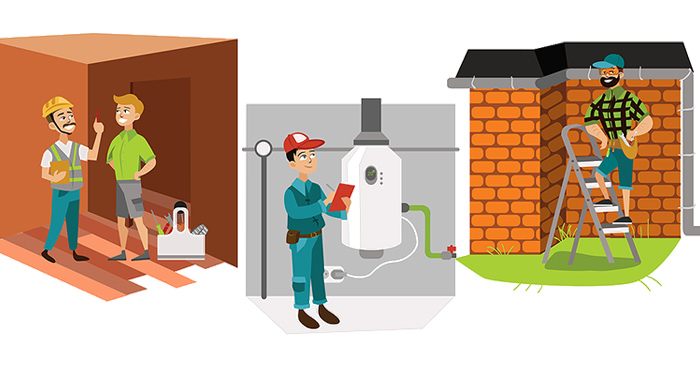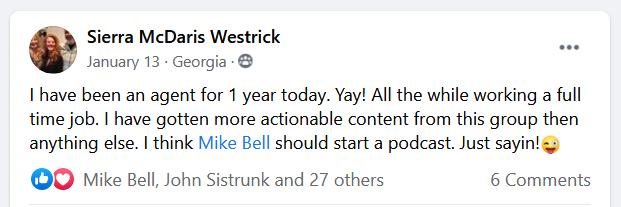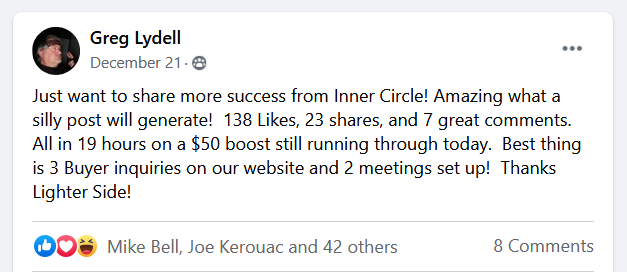
How One Realtor is Crushing It with Facebook, and How You Can Too
Want a strong dose of reality? Are you sure? Because this is going to sting: In my opinion, the vast majority of agent Facebook pages



“Fixer-upper” is one of those real estate terms that just kind of sounds fun and hopeful. It brings to mind images of rolling up your sleeves, picking out tile samples, and ending up with the home of your dreams at a bargain price. And sometimes, that’s exactly how it works out.
But a fixer-upper can also be more than some buyers want—or are prepared—to get involved with.
The reality is that whether they sound like an opportunity or something you’d rather avoid, sometimes buying a house that needs work is your best option. Maybe there aren’t other homes available in your price range. Maybe the house is in a far better location than other properties in the same budget. Maybe you’re excited about starting from scratch and putting your own touches on the place. Or maybe the deal is simply too good to pass up.
Buying a house that needs work can be a smart move—as long as you know what you’re getting into and make thoughtful decisions about what work to do and when.
The first thing to recognize is that “fixer-upper” spans a broad spectrum. On the low end, it could mean small cosmetic updates—things you can tackle with a free weekend, a trip to the hardware store, and a YouTube tutorial. On the high end, it could mean extensive (and expensive) work that only licensed professionals can legally or safely do.
That wide range is exactly why many people oversimplify or underestimate what they’re getting into. Others don’t necessarily underestimate the workload, but they mis-prioritize it.
It’s very tempting to start with the projects that are visible, noticeable, and bring instant joy like a brand-new kitchen, stylish light fixtures, or even just fresh paint. Those are also typically the lower-cost projects that feel productive and satisfying.
But it’s important to keep in mind that a chic new chandelier won’t keep you warm if the furnace is on its last legs.
Knowing which jobs to tackle—and in what order—is critical. A recent Realtor.com article laid out a smart system for fixer-upper improvements, and the main takeaway is this: save the “fun” projects for last, and put the serious, structural work at the top of your list.
Here’s a simplified breakdown:
Start here:
Next on the list:
Save for later:
Spelled out like this, it’s clear that the improvements which matter most aren’t necessarily the ones that will earn you compliments right away—unless, of course, your houseguests are contractors who can admire that shiny new furnace, water heater, and roof.
Figuring out what needs to be done—and in what order—can feel overwhelming, especially for first-time buyers. The good news is, you don’t have to sort it all out on your own. A few key experts can help you make smart decisions before you buy a fixer-upper and while you’re in the thick of fixing it up.
The first person to lean on is a home inspector. A thorough inspection doesn’t just flag issues; it also helps you understand which problems are urgent, which can wait, and which might make the home a poor investment altogether. A good inspector may even offer ballpark cost ranges for repairs so you can start sketching a realistic budget.
Next, reach out to the professionals who would actually do the work. If you’ll need plumbers, electricians, or roofers, start calling around for estimates. Even if you think you’ll tackle some projects yourself, don’t just wing it—research the cost of materials and the time it will take. Overconfidence and under-budgeting are a classic recipe for frustration.
And don’t overlook your real estate agent. An experienced agent isn’t just there to get you into the house—they can also help you decide which improvements offer the best return on investment. Not every upgrade is worth the expense, especially if you’re planning to sell in the near future. A good agent can help you focus on ROI-smart decisions, weighing what really matters most in your local market.
They may be close cousins, but buying a fixer-upper to live in is not the same as flipping a house.
Flippers are on a deadline. Their business model depends on finishing fast, keeping costs tight, and selling for a profit.
Buyers purchasing a fixer-upper as their primary home face a different reality. It’s more of a marathon than a sprint. Renovations might stretch over months—or even years.
If you have an unlimited budget, minimal work, or the skills to tackle everything on your to-do list quickly, that’s fantastic. But if your budget is limited, the house needs a lot of work, or your DIY skills aren’t quite that advanced, it’s smart to plan on breaking the work into stages.
Either way, taking the time to think through your budget, your timeline, and a realistic plan of attack—and setting clear expectations—will serve you well.
The Takeaway:
Buying a fixer-upper can be one of the smartest moves you make—or one of the most stressful. The difference comes down to preparation.
Go in with a clear understanding of the work required, a realistic budget, and a practical timeline. Start with the essentials, save the “fun” projects for later, and lean on inspectors, contractors, and your agent to help guide your priorities.
It’s not the same as flipping a house, and it’s rarely as easy as TV makes it look. But if you keep your eyes open and your priorities straight, a fixer-upper can be more than just a hopeful term. Done thoughtfully, it can become the home you’ve always imagined.

(Shh, our secret)
Show your sphere your an expert. We have over 2100 articles covering every real estate topic your audience will love.
Position yourself as a real estate authority!
Real estate + topical events — the perfect match!
Become the bearer of good vibes!
Because hey, everyone loves to laugh!



Get our weekly email that makes communicating with your sphere on social actually enjoyable. Stay informed and entertained, for free.

Want a strong dose of reality? Are you sure? Because this is going to sting: In my opinion, the vast majority of agent Facebook pages

Have you heard how amazing AI is, and how you should be using it to improve your real estate business in every way?! That’s rhetorical,

As the saying goes, you shouldn’t judge a book by its cover. But when you’re hiring a real estate agent, it can be easy to

Oh, how being a real estate agent has changed over the years. It used to be that if you wanted to learn something, get another

You probably never even heard the term until you became a real estate agent. But once you became one, you were probably told how important
Depending on your situation, it may not take the full 30 minutes.

This reset password link has expired. Check the latest email sent to you.















